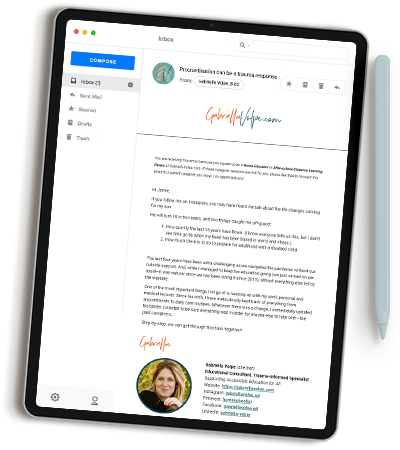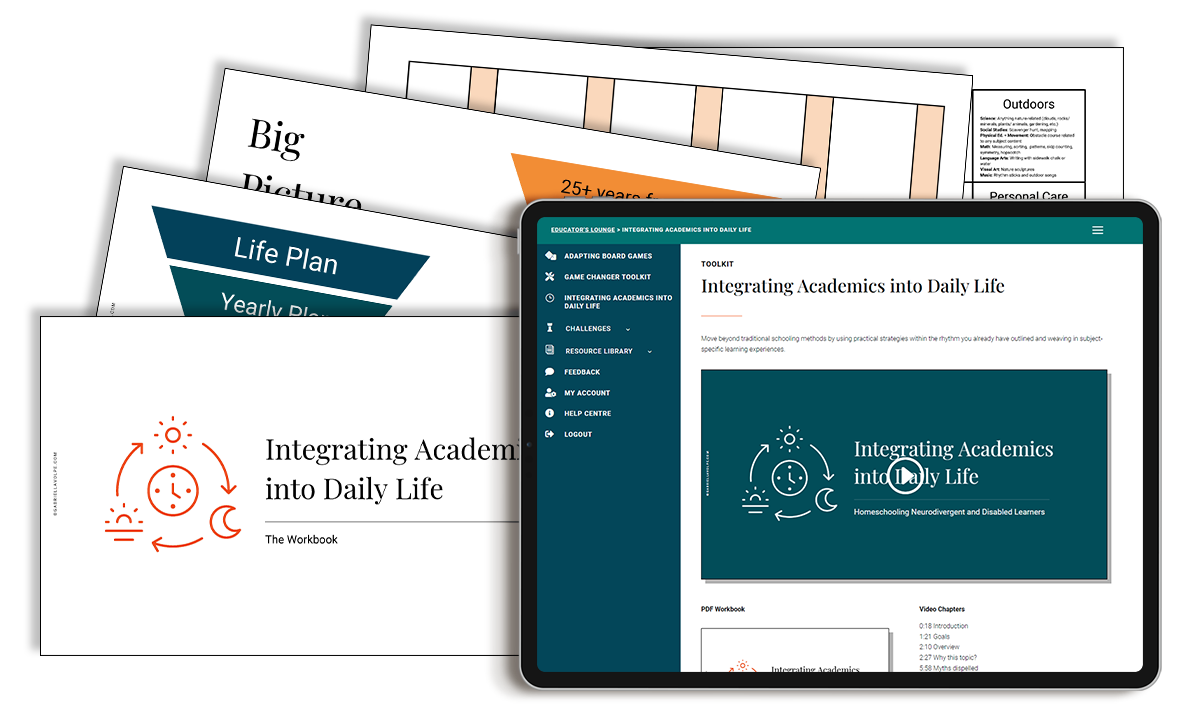Your essential homeschool roadmap to success!
Welcome to your comprehensive resources for back-to-homeschool!
It’s time to gear up for an enriching learning experience tailored to your child’s needs. Whether you’re a seasoned homeschooler or embarking on this journey for the first time, this collection of carefully curated articles has you covered.
In this post, you’ll find a wealth of valuable resources, insights, and practical tips to ensure your homeschooling adventure is successful and enjoyable for you and your child(ren).
Discover strategies for creating engaging lesson plans, fostering a supportive learning environment, and addressing the unique needs of neurodivergent and disabled learners.
“The most important work you and I will ever do will be within the walls of our own homes.”
~ Harold B. Lee

Wooden stackable counting set for back-to-homeschool
Considering Homeschooling
- The Benefits of Home Educating a Disabled Child – Discover autonomy, flexibility, and tailored pacing for unique needs.
- What Classrooms Miss: The Benefits of Home Educating for Neurodivergent and Chronically Ill/Disabled Learners – Insights into customized, meaningful learning experiences.
- When a Parent Just Knows: Making the Decision to Educate at Home – Trusting your intuition in choosing the right path.
- Additional Perspectives
- Lean Into Home Education: Making the Decision to Homeschool
- Can We Really Do This? Thoughts on Home Educating a Disabled Child
- Core Beliefs About Education
- Dismantling Authoritarian and Ableist Education Through Home Education
- The Necessity of Deschooling
- Unschooling: A Guide for Parents Ready to Break Free from Conventional Education
Planning for Homeschooling
- Planning the Home Education Year – Set realistic goals, adapt to your child’s pace, and establish routines.
- Back-to-School Planners – Printable tools to organize schedules, themes, and reflections.
- 31 Days of Morning Circle Activities – Fresh ideas for engaging daily routines and creativity.
- 31 Days of Pinterest Hacks – Fresh ideas for engaging daily routines and creativity.
- Gameschooling Neurodivergent and Disabled Learners – Play-based strategies for deeper learning.
- Adapting Board Games for Neurodivergent and Disabled Kids – Play-based strategies for deeper learning.
- Simple Systems for Organizing Homeschool Materials, Paperwork, and Student Work – Easy-to-implement organization methods.
- Planning with focus
Strategies for Neurodivergent and Disabled Learners
- The Fine Line Between Remediation and Fostering a Child’s Differences
- Honing Passions: Using the Child’s “Fixation” as a Motivator for Learning
- Is Remediation in Your Home Education a Reflection of Your Child, or Internalized Ableism?
- Making Transitions Easy: Tips for Home Educating a Disabled Child
- Teaching to Traits, Not a Diagnosis
Get more resources like these!

Sign-up to my newsletter for homeschoolers
By signing up for email alerts, you agree to receive updates and promotions to support you in home education. You can unsubscribe at any time.
Motivation in Homeschooling
- The Message in the Resistance in Learning – Understanding what resistance may reveal.
- Drive Teaching by Addressing the “Why” – Deepening motivation through purpose-centered instruction.
Philosophy of Homeschooling
- Reflections
- Building a homeschool culture
- Fostering Non-Judgement and Nourishing Compassion While Cultivating Freedom of Choice in Your Home
- Don’t Fall Prey to a System Within the Freedom of Homeschooling
- Does Balance Exist in Home Education?
- Lies Society Accepts About Education
- Society’s View of the Parental Role in Education
- Bypassing Systemic Barriers in Education
Ready to transform your homeschool year? Dive into the resources above to build a personalized learning experience that speaks to your child’s strengths and needs.
Next step: Download your favorite tool, explore a fresh strategy, and adapt it as you go.

Integrating Academics into Daily Life Workshop
Discover how to integrate academics into daily life. For homeschoolers of neurodivergent and disabled learners.

0 Comments